In chronicling the dark night of the Holocaust, filmmakers have discovered occasional chinks of light in the deeds of Righteous Gentiles, those who risked much to succor and save Jews.
Many of these men and women, of all nationalities and faiths, risked — and some lost — their lives in the rescue efforts, and they were among the true heroes of that era.
Others, like Oskar Schindler, used their positions and skills to extract potential victims from the Nazi clutches.
One such man was the title character of “Nicky’s Family,” in which “Nicky” stands for Sir Nicholas Winton. His “family” consists of 669 mostly Jewish children (and thousands of their descendants) who, mainly through his personal efforts, were spirited out of German-occupied Czechoslovakia in the months leading up to World War II and placed with families in England.
At 104, Winton is sound of mind and body and stars in his own story. In broad strokes, he, and the movie, recount that he was working as a stockbroker in London and setting off for a ski vacation in Switzerland in early 1939 when his plans were interrupted by a plea from a British friend in Prague to join him in a rescue effort.
The friend correctly anticipated that Adolf Hitler would soon gobble up the rest of Czechoslovakia after the Munich Agreement and then go after Jews, communists and others on his enemies list.
In focusing his efforts on rescuing children, Winton had a ready-made model in the prevailing Kindertransport. Through these transports, the British government allowed 10,000 children from Germany and Austria, between ages 2 and 17, to enter England — but without their parents or elder siblings.
But while the British government arranged for the transport and integration of the refugee children, Winton had to raise the money on his own to bring in the Czechoslovak contingents and then find foster homes for them.
It was a mammoth task for Winton and a handful of friends, all working under the intense time pressure of the impending world war. Even at home, a segment of the British Jewish community objected to the placement of Jewish refugee children with Christian families.
Once the task was completed, Winton quietly closed out this “episode” in his life and went back to his daytime job at the stock exchange. His deeds might have remained unknown, but for his wife Grete, who was rummaging through their home’s attic some 47 years after the rescue operation, of which her husband had never spoken to her. What she came across was a box filled with documents, letters and lists of the names of all the saved children and of the British families who took them in.
Gradually, the story leaked out and became widely known in 1988, when the popular BBC television show “That’s Life!” invited Winton to one program as an audience member. In the middle of the show, the hostess asked all those rescued through Winton’s intercession to rise, and several rows of fellow “spectators” stood up.
Subsequently, he was dubbed “Britain’s Own Schindler” by the media, knighted by Queen Elizabeth, designated a “British Hero of the Holocaust” by his government, and nominated for the Nobel Prize by Czech authorities.
One aspect of the Winton story not mentioned in the film or in the numerous encomiums showered on the man is his own family background.
In all representations, Winton was portrayed as the complete Englishman who sort of stumbled into the refugee situation to help a friend, but once caught up gave his all to help the children.
In fact, Nicky is the son of German-Jewish parents, who immigrated to England two years before he was born in 1909, changed their name from Wertheim to Winton and had their son baptized and confirmed in the Anglican Church.
These facts in no way detract from Winton’s remarkable work, but they do raise the question of whether this family background helped motivate Winton’s immense efforts to rescue the Czech and Slovak children, most of whom were Jewish.
A qualified answer appears to be “no,” based on an e-mail exchange between this reporter and Winton’s daughter, Barbara Winton, who is writing a biography of her father.
“Everyone considered [my father] a quintessential Englishman,” and “I don’t think Nicky ever considered himself Jewish,” Barbara Winton wrote.
She ascribed his intervention more to his left-wing political views and contacts, as well as the reading of Hitler’s “Mein Kampf,” which led him to recognize the Fuehrer’s intentions earlier than most of the Western world.
“Nicky has always said that he did not set out to rescue Jews in particular, but all those in danger, which of course included a very high proportion of Jews,” Barbara Winton wrote.
The one time Winton’s “Jewishness” became an issue was when it was proposed that Yad Vashem honor him as a Righteous Gentile.
Either through his own intervention or through Yad Vashem’s background investigation, it became clear that the son of two Jewish parents could not be considered a “gentile,” and the honor was quietly withdrawn.
A similar overall picture of Nicky Winton was outlined by Matej Minac, the Slovak producer and director of “Nicky’s Family.”
Minac has made something of a career out of Winton’s life, and the current film is the third in an informal trilogy about the subject, the director said in a phone interview.
The first film, “All My Loved Ones,” was a dramatized version with actors playing Winton and other characters. The second, “The Power of Good: Nicholas Winton,” was a straight documentary.
“Nicky’s Family,” the third production, is somewhat of a hybrid, combining actual interviews with Winton and the rescued children with archival footage and lengthy re-enactments of various episodes.
Some of the latter strain belief, such as the introduction of a voluptuous blonde, employed by the Nazi authorities in Prague to use her wiles to find out what Nicky was actually up to.
Minac, however, testifies that this and all of the film’s re-enacted episodes are based on factual evidence.
The alternation of cinematic styles leads to occasional confusion, but Minac clearly emphasizes a primary theme that in paying Winton’s good deeds forward, his “children” and children’s children have contributed much in skills and humanitarian endeavors to the country that gave them shelter and to the world at large.
“Nicky’s Family” opens July 19 at Laemmle’s Royal Theatre in West Los Angeles, Town Center in Encino and Playhouse in Pasadena.











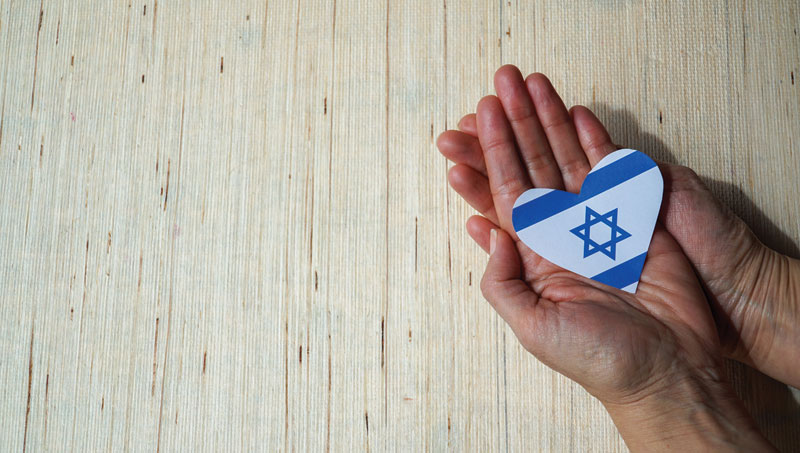


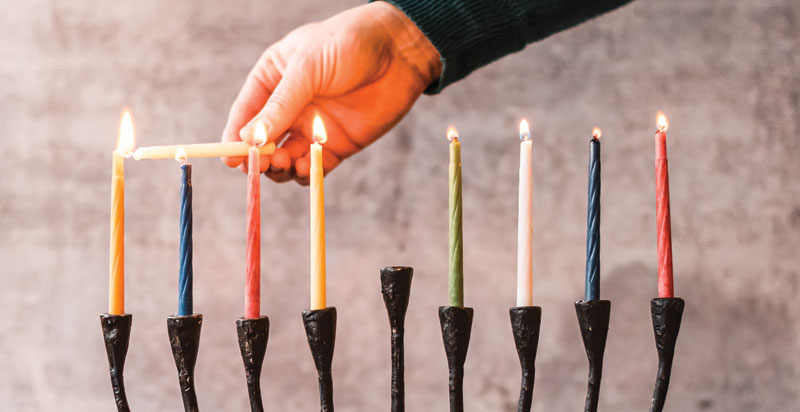
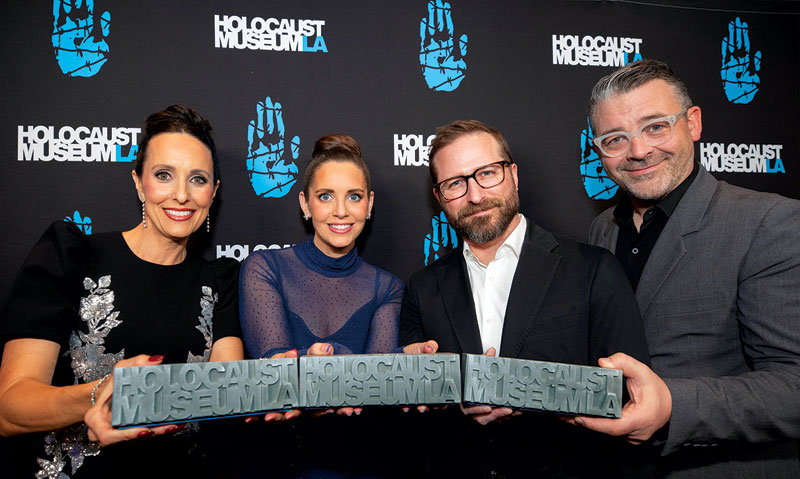
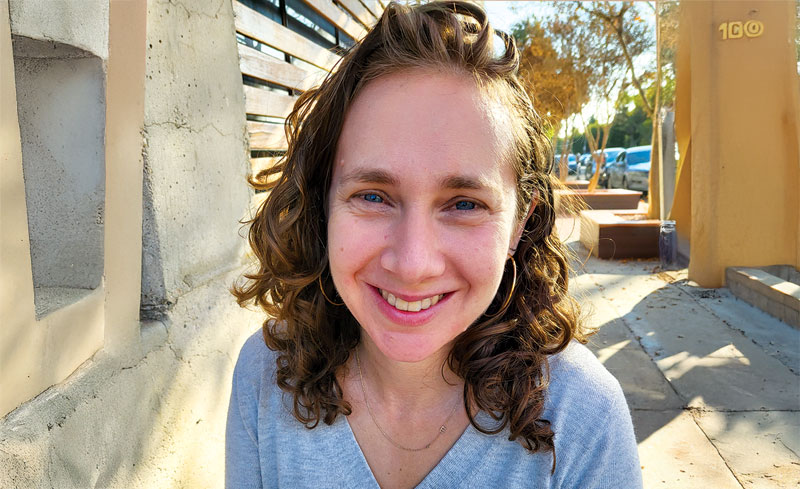
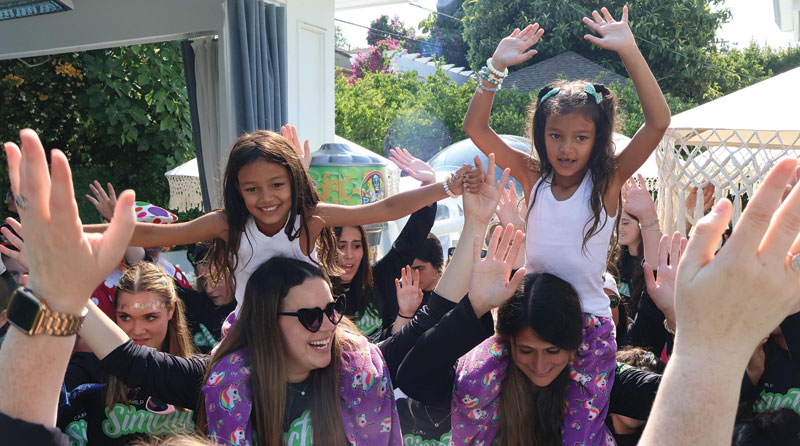





 More news and opinions than at a Shabbat dinner, right in your inbox.
More news and opinions than at a Shabbat dinner, right in your inbox.